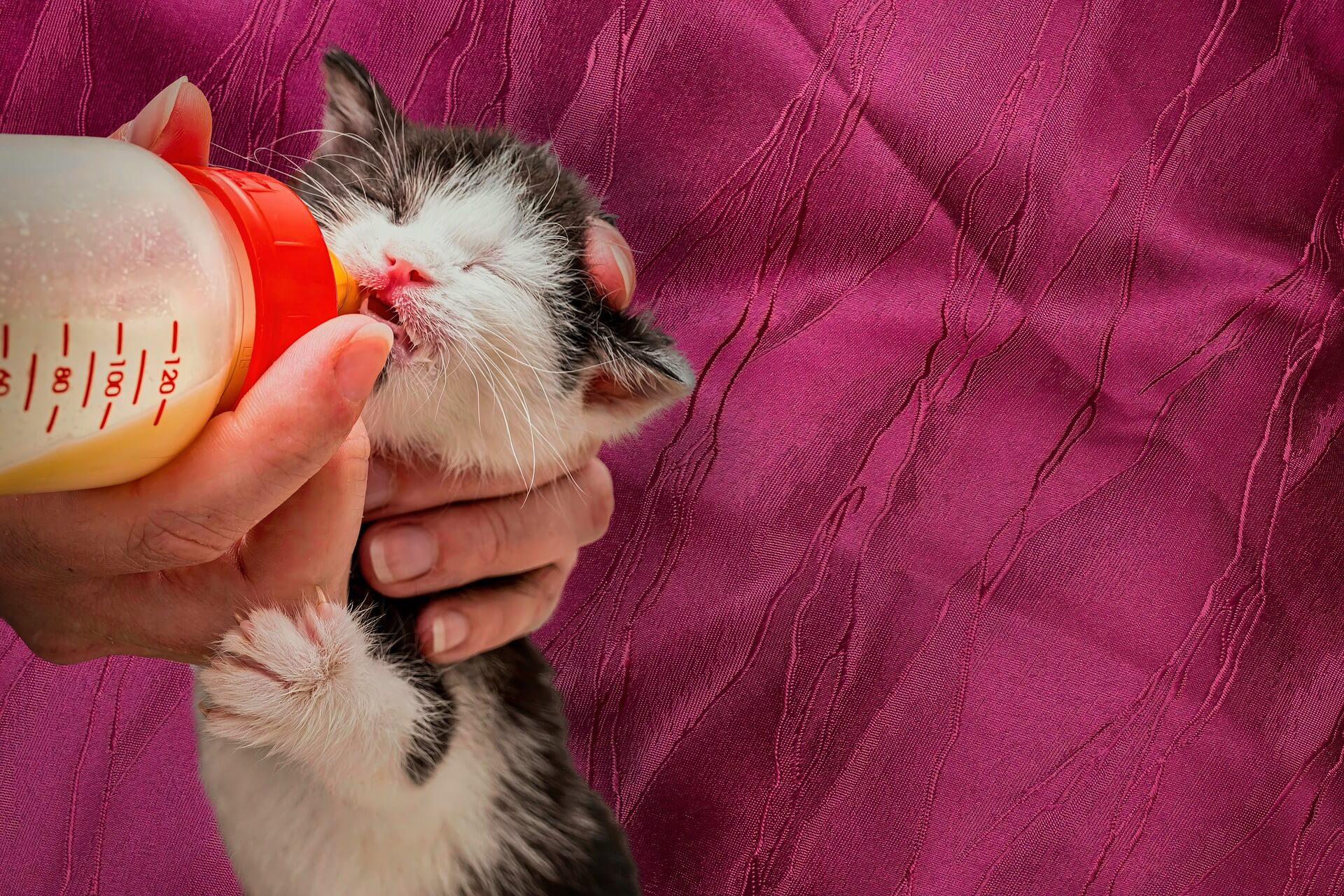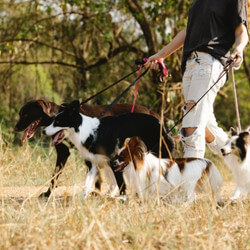Sadly, hundreds of animals need rescuing every week. From freeing them from unhealthy conditions to finding them new and safe homes, the job of an animal rescuer can be incredibly rewarding.
Yet, being an animal lover is not enough to embark on this job. On top of your passion for animals, you also need to equip yourself with the correct qualifications and ensure that you are capable of dealing with difficult environments.
What is an animal rescuer?
Animal rescuers are individuals who work in animal care and are committed to saving animals from unhealthy and often dangerous living conditions. Their work can include rehabilitating and rehoming domestic animals (cats, dogs, rabbits, etc.), as well as caring for wild animals in wildlife rehabilitation centres.
Due to the nature of this position and the situations you’ll have to deal with, you can apply for many positions as an animal rescuer, such as:
Shelter Attendant– Here you will attend to the immediate care of rescue animals, helping to familiarise them with home living, other animals, and individuals. In turn, you will be responsible for training (e.g. bad habits) and their daily care (food, cleaning, etc.).
Wildlife Rehabilitator – Here you will specialise in the rehabilitation of injured wild animals by restoring them to health and enabling them to return to the wild.
Pet Adoption Specialist – In this position you will focus on finding rescue animals new homes that are safe, secure, and equipped to meet their needs.
Animal Control Officer– In this post, you will be in charge of the actual rescue of animals who are reported to be in bad situations.
Animal Behaviour Counsellor – Your job will be to house train and ensure all bad habits are gone e.g. bad walking, chewing, going to the toilet in the house, etc. Through corrective techniques, you can increase their chances of being rehomed with a new and caring family.
Veterinarian – As a vet you will help to care for, nurture, and restore the health of ill/injured animals. This may be through surgery, medicine, and other medical treatments.
Veterinary Technician – Here you will support vets in the restoration of ill/injured animals.
What key things do animal rescuers do?
Despite the extensive list above, most animal rescuers perform the following jobs across the course of their day:
- Caring for abandoned pets
- Cleaning kennels and other areas of the animal care facility
- Improving dog socialisation with each other and other animals (through the use of structured playtime and activities)
- Searching for, assessing, and investigating potential adopter candidates to ensure animals are adopted into safe spaces.
- Animal behaviour training (after rescue)
- Maintaining adoption records
- Taking hurt/sick animals to the vet for medical care
- Nursing wild animals back to health/rehabilitating wild animals before returning them to their natural environment
- Rescuing escaped/dangerous animals and bringing them to shelters
- Managing inventory e.g. pet food, cleaning supplies, and medical supplies
How can I become an animal rescuer?
If you’re serious about working in animal rescue, then there are several steps you’ll need to complete before you can apply for the post:
1. Assess your skills
Loving animals isn’t enough to get you into animal rescue. You also need to be a calming influence (both to people and animals), empathic, good with animals, and know how to identify and handle irregular behaviour. In addition, you need:
- Strong communication skills – As you’ll be dealing with professionals and potential adoptive families regularly.
- Highly organised – You need to be thorough and pay attention to every detail. Your observations could be the difference between a rescue animal being sent to the perfect home, or accidentally ending up with the wrong family.
- Initiative – Think outside of the box, and be able to think on the go.
- Be flexible and open to change – No one day will be the same, and you’ve got to be prepared to adapt and modify your behaviour to suit the situation
- Be Patient – Know that you can remain calm and relaxed in stressful situations
- Work well with others
- Work well under pressure
- Admin and computer skills
It is important to remember that rescue animals need consistency and routines to help offer them the stability and support they were previously lacking. By harnessing/acquiring the above skills, you can offer them a better level of care.
2. Qualifications
-
- At a minimum you will need GCSEs to become an animal carer; however, given that most animal rescues want you to be at least 18 years old before you can work for them, you may as well use this additional time to bolster your GCSEs, attain some A-Levels and take some animal care courses.
- Animal care courses can be undertaken at college and can teach you how to care for, support, and assist hurt or abandoned animals. Online animal care courses can similarly provide you with the tools and resources you need to begin effectively working in the animal care field.
- Another thing you can consider is getting a bachelor’s degree as this will enable you to apply for management positions in shelters or become a vet/veterinary technician.
- Other degrees you can consider include: zoology, animal behaviour, biology, environmental science, exotic animal training and management, veterinary science, wildlife, and marine biology.
Course Recommendations:
Embark on a transformative journey into Animal Care, where you’ll gain the knowledge to safeguard the well-being of our furry friends. From understanding legislation to mastering animal behaviour, this course equips you to be a compassionate animal rescuer. Enrol now and pave the way to make a positive impact on the lives of those who cannot speak for themselves.
Delve into the intricate world of Animal Behaviour, unlocking the secrets of communication, domestication, and the unique ways animals learn. This course empowers you with the insights needed to connect with and rescue animals effectively. Enrol today, and embark on a rewarding journey towards becoming a knowledgeable and empathetic animal rescuer.
Step into the realm of Animal Welfare, where you’ll explore laws, health guidelines, and conservation efforts. This course empowers you to advocate for the welfare of diverse creatures, from farm animals to marine life. Enrol now to amplify your impact as an animal rescuer, contributing to a world where every creature is treated with care and compassion.
3. Look for work as an animal rescuer
One of the best ways to get training and enhance your level of experience is to work in an animal shelter. As a volunteer, you’ll learn the ropes on how to care for animals, as well as gain a detailed picture of what will be expected of you as a rescuer. From cleaning out their kennels to rehabilitating and eliminating bad habits, to socialising them with other animals, to administering their medical care; you will gain a thorough insight into how animal shelters work. In turn, you will gain a glimpse into the adoptive process; the vetting system used to check out prospective owners, and all the necessary steps that need to be done to find animals a new home.
4. Additional training
We mentioned online animal care courses in the qualifications section above; however, any additional training you can get will improve your career prospects.
Popular animal care courses include:
Dog grooming – A lot of rescue animals will either be animals who have lived on the streets, or who have been taken away from abusive/harsh living conditions. In many instances, you will encounter an animal in dire need of some TLC. Having an online dog grooming qualification in your arsenal will enable you to treat skin conditions/irritations; cut their nails/fur, and give them the self-care they deserve.
Veterinary support assistant – From handling patient files and administration, to assisting vets with animal treatment/medical care; this qualification will give you the skills to confidently work in a veterinary practice.
Canine studies diploma – This course is helpful to those who want to work primarily with dogs.
Equine studies – This course is suitable for horse enthusiasts, who are interested in caring for our equine friends.
Feline studies diploma – With a focus on cats, pairing this with the canine studies course will enable you to work in a variety of animal care situations.
Zoology – If you fancy working with exotic animals abroad or in a zoo, this diploma will enable you to climb the career ladder and potentially become a zoo keeper.
How much can you earn as an animal rescuer?
Naturally, you will earn more working as a vet than as a rescuer in an animal shelter; however, even as an animal care worker in a kennel, rescue centre, or sanctuary, you can expect the following income – £14,000 when you first start, going up to £24,000 when you’re more experienced.
This salary is based on you working 38 to 40 hours a week consisting of evening, weekend, and bank holiday work.
Conclusion
Venturing into the field of animal care is easier than you think once you understand your career options and the qualifications you’ll need to make it happen. Whether you learn better in an educational environment or are an independent learner who studies best through your guidance or tuition; you will find a variety of college, university, or online animal care courses that will equip you with the skills you need to apply for the job you want.
So if you’re passionate about the well-being of animals and want to make a positive difference in their care and health, why not take a look at some of our online animal care courses today? For more information on how online courses work and their accreditations, take a look at our website.













 0333 344 2126
0333 344 2126